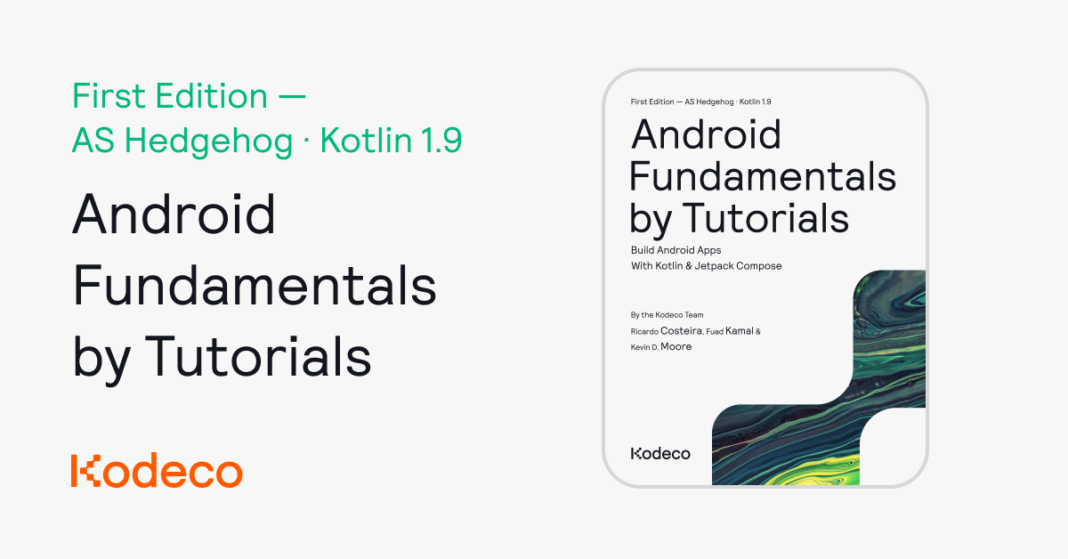This guide is for these new to the Android platform, or junior Android builders
seeking to get a wider grasp of what all Android has to supply.
- Android Studio
- Kotlin
- Jetpack Compose
- Structure
- Mannequin View ViewModel
- Mannequin View Intent
- Networking
- Storage
- RoomDB
- DataStore
- Encryption
On this guide, you’ll learn to construct Android purposes from scratch utilizing
Android Studio because the IDE. You’ll be taught the fundamentals of Kotlin and find out how to construct elegant
UI with Jetpack Compose. You’ll develop on the fundamentals by making strong and scalable apps
utilizing well-established structure patterns.
extra
This part tells you a number of issues it’s essential to know earlier than you get began, akin to what you’ll want for {hardware} and software program, the place to search out the undertaking information for this guide, and extra.
On this part, you’ll be taught concerning the fundamentals of Android and Kotlin, the language that powers the platform. This part will stroll you thru establishing Android Studio and constructing your first app: Kodeco Chat. You’ll additionally study Gradle, Android’s construct instrument and find out how to construction app tasks to make use of a few of Gradle’s highly effective dependency administration options.
Welcome! This chapter will briefly cowl what you may be taught on this guide and introduce you to the Android framework and Kotlin language.
To start creating that killer Android App, you’ll want some steering on putting in the instruments you’ll want as a younger apprentice. Android growth takes place inside Android Studio, a personalized IDE primarily based on IntelliJ Platform that provides you highly effective instruments.
This chapter supplies a short overview of the Android life cycle, the earlier iteration of Android UI constructing blocks and the main points of the varied elements that type an Android undertaking.
On this chapter, you may find out how Gradle scripts work, find out how to handle dependencies with Model Catalogs and find out how to signal your app.
Now that you’ve the Android growth fundamentals down, it’s time to take a deeper dive! In Part II, you’ll be taught all about Android’s new UI toolkit: Jetpack Compose. As you study Compose, you’ll proceed to iterate and construct a extra UI-rich Kodeco Chat utility, full with customized UI message elements.
As you progress via this part, you’ll additionally study extra superior structure patterns like MVVM and MVI and how one can set up and construction your code to make use of them. Good structure permits you to scale up your undertaking with minimal modifications to your codebase.
Lastly, towards the tip of the part, you’ll begin on a brand new Recipe Finder that dives into fetching information from an API and rendering that information onscreen.
On this chapter, you may be taught the fundamentals of Compose UI and construct a easy Android app UI with it.
On this chapter, you may learn to make your app rather more useful utilizing ViewModel, MVI and Navigation.
Study and implement the repository structure sample and use the Ditto SDK to finish the Kodeco Chat app.
This chapter will educate you find out how to retrieve information from the web and retailer it in mannequin lessons, which you may use to show recipes within the app.
By this level, you’ve discovered about Android growth in Kotlin and utilized that information to constructing a pair strong purposes already. In Part III, you’ll go one step additional, persevering with on the Recipe Finder app to supply extra characteristic enhancements, like offline mode. You’ll be taught concerning the completely different strategies of knowledge storage, together with DataStore and RoomDB, and the way every can be utilized in your apps.
Final however not least, you’ll study some superior storage methods like file entry and securely encrypting the info you retailer.
This chapter will educate you find out how to retailer small bits of knowledge domestically for saving consumer’s preferences.
This chapter will educate you find out how to save recipes and components from the recipe app to a neighborhood database utilizing Room.
This chapter will educate you find out how to encrypt information in your preferences and databases.


